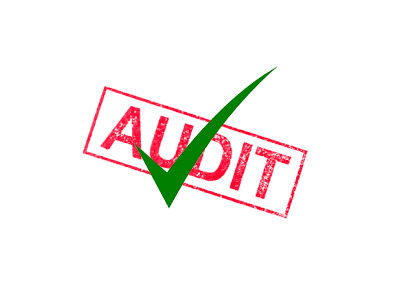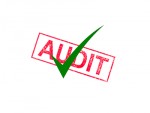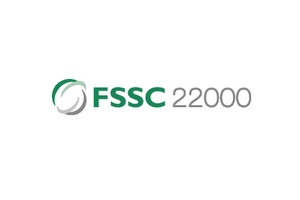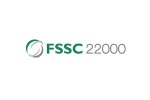A well-developed internal auditor training course is an exceptional knowledge source for the new or experienced auditor. A formalized training course provides the auditor with an overview of the auditing basics including audit planning, facilitation, and report writing. These concepts are the foundational elements needed to build a robust internal auditing program. Not only do training programs enhance auditor competency they also provide benefit to the business. In this article we discuss how internal auditor training improves the overall management system through process improvement, risk reduction and organizational culture.
Identify the Training Needs
Continuous improvement should always be one of the top strategic goals of an organization. With the constantly evolving business environment and evolution of technology businesses must be prepared to adapt. A straightforward way to accomplish this goal is to utilize internal auditing. The first step is to develop a strong audit team armed with the required skillset. Identify your team members and determine the training needs for each of the individuals. Auditors with previous experience may only need a refresher while those new to the role may need more in-depth training. Determine the format and structure that works best for your organization and work with the team to get the training on the calendar.
Internal auditor training is not a one-time activity. These skills require repetition to become fully competent. Auditors should put their newly acquired skills into practice as soon as possible to ensure maximum benefit. Partnering new auditors with experienced auditors is a great way for auditors to build confidence in their newly acquired skills. Take time to review the work of auditors and provide positive feedback on progress. Keep communication open around expectations and check in with your team to discuss any issues or roadblocks that may be encountered. Auditing is not an easy job. Support from top management is critical to ensure the program is a success.
Process Improvement
Having a skilled audit team will help to drive process improvements across the organization. The goal of internal auditing is to identify gaps in the management system where the organization is failing to meet a requirement. Requirements can come from a variety of sources including the management system standard, statutory and regulatory bodies, the customer, or internal standards the organization has committed to meeting. These requirements can often be complex and confusing for auditors to interpret and understand. This is where training is the most beneficial. Internal auditor training helps the participant to develop the mindset of an auditor and aid in identifying the linkage between the requirements and evidence provided by the auditee. This understanding is necessary to properly identify gaps and build a continuous improvement across the organization. When auditors have a full understanding of the requirements they can perform in-depth audits that go beyond a check the box activity.
The outcome of an internal audit is often a punch list of activities due to identified as nonconforming against the requirements. Through the identification of gaps in the system there is an opportunity to improve the day-to-day process within the site. This will not only aid in meeting the requirements but also will improve efficiency and productivity. Which in turn leads to enhanced processes that result in a stronger system overall.
Risk Management
Risks are an inherent part of business. There will always be risk therefore businesses must formulate a method to manage those risks. Internal auditing is a way to review and confirm all risks are identified for and controlled accordingly. Through internal auditing a review of the processes is conducted thus resulting in the identification of potential unidentified risks that may be lingering below the surface.
By building the foundation and understanding of risks through training the internal audit team can help to lead the business to a mindset that is focused on reducing those risks as much as possible. Training is a great way to familiarize the audit team with the risk that may impact the business. Understanding the requirements that are currently imposed upon the business by both external and internal stakeholders will help the team to identify areas of greatest concern. The continuous assessment and the implementation of preventive measures to address risk will provide substantial benefit to the organization.
Culture of Quality
Changing an organization’s culture does not happen overnight. It takes hard work and perseverance. This requires extensive communication and commitment from the employees at all levels of the organization. Building an organizational culture that has a strong focus on quality often requires providing education and exposure to new concepts. Establishing a robust internal auditor training program is a great way to instill the foundational elements of a quality focused organization for the audit team. Training should focus on the basic quality principles and meeting exceeding customer expectations. Through these concepts auditors learn the skillset needed to drive change from within the organization.
Driving awareness across the site around the management system and the requirements is crucial to success. Employees often feel nervous and are reluctant to participate in audits due to the unknown. Demystify the management system by providing training to plant employees. Audit team members are a great resource to lead these types of educational sessions. It not only allows them to share the skills they have learned in auditor training but also helps to promote a culture of quality. Focus areas could include providing a basic overview of standard requirements, processes within the scope, and what to expect during the audit. By putting forth this additional effort will help to instill positive changes around quality. The site will be engaged and excited to participate in potential growth and improvement opportunities. The once dreaded internal audits will be a thing of the past.
Choosing the Right Course
There are a variety of different trainings options available regarding internal auditing. Often courses are structured based upon a management system standard and the auditing level. The best choice will depend upon each unique organization or individual. If new to the concept of auditing an introductory course may be best to outline fundamentals. Once completed the individual can move up to a more in-depth course such as a lead auditor course. If the organization is focusing on a specific standard such as ISO 9001:2015, FSSC 22000:2018 or BRC it’s often beneficial to attend a course specific to those requirements. As there is often a heightened focus on the specific details regarding requirements and expectations from certification bodies.
Editors Note: Food Safety Auditor Training is offered at the Food Safety Consortium Conference, October 20-22, 2024 in Washington DC. This 4-part series is designed to provide the knowledge, behaviors and technical skills attributed to a competent food safety auditor. More information.
Additional Resource: What Does It Take to Be a Food Safety Auditor? On Demand Webinar




















